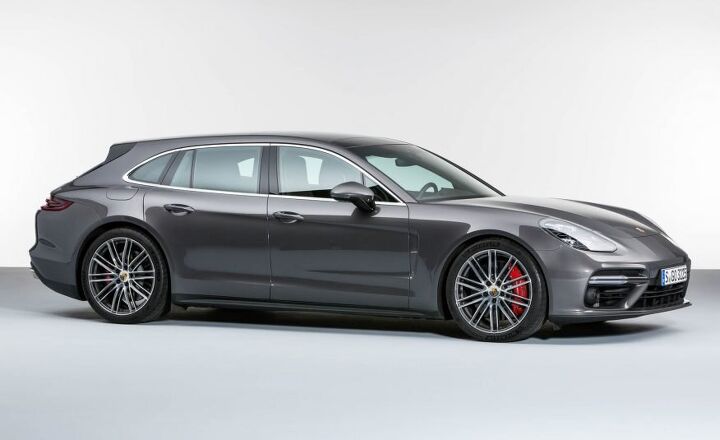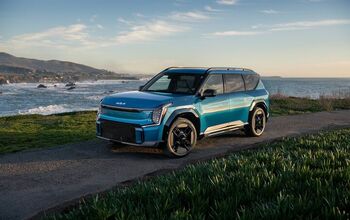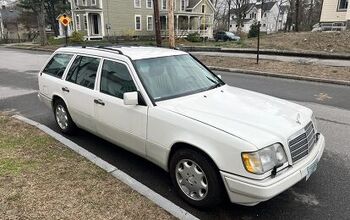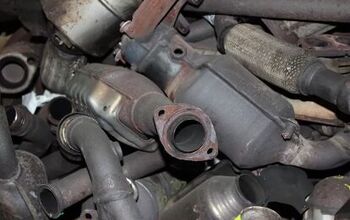Almost Sensible: Porsche Panamera Sport Turismo Wagon is Coming to America

If someone woke up today from 20-year coma, the two consumer trends they would have the most difficulty coming to terms with are just how skinny jeans have become and the fact that more than half the cars Porsche sells are SUVs. So, for those of us not emerging from two decades of slumber, the notion that the German automaker might someday produce a station wagon wasn’t entirely without plausibility.
Porsche showcased the Panamera Sport Turismo wagon concept at the Paris auto show in 2012, hinting that it might someday have a place in its lineup, but it wasn’t until last year that we heard anything further. Now its here and everyone is clamoring over how unexpected this is. If anything is unexpected, it’s that Porsche didn’t come out with a gorgeous five-door sooner. I’m willing to bet that this will be a you-got-your-peanut-butter-on-my-chocolate sort of situation — taking into account that some people aren’t all that fond of peanut butter.
Since it is a still a Panamera, its looks will remain polarizing for some while the new wagon aspect will either solve or exacerbate that problem. It all depends on your preference, though I’m sold on the appearance— it will be the styling that sells the car, as it doesn’t offer gobs of added practicality. While it does seat five, the Sport Turismo only yields an extra 1.8 cubic feet of potential cargo space from a standard Panamera. Still, that car was already more livable than a lot of the competition and there really isn’t much to compare the Turismo to the U.S. market. The Mercedes-AMG E63 S Wagon is forthcoming but will only come in one crazy flavor, leaving you with the E400.
With the exception of its hindquarters, Porsche’s wagon shares the vast majority of its parts with the rest of the Panamera family. It’s wheelbase is identical to the fastback and it is neither taller nor longer. Engine options for North America include the 330 horsepower 3.0-liter turbo V6 and 550 hp 4.8-liter twin-turbo V8 (apologies to the 10 Porsche diesel fans living in the United States). The E-Hybrid powerplant should also be available. All-wheel drive will be standard on the wagon.
The only other thing that sets the Sport Turismo apart is its distinctive roof spoiler. Depending on the vehicle’s speed and drive mode, it will trim itself to minimize drag or raise to add downforce. It also has a third setting designed specifically to minimize wind noise when the panoramic sunroof is open.
Porsche’s Panamera Sport Turismo will be showcased at the Geneva Motor Show next week and goes on sale in the fall. The entry-level 4 Sport Turismo starts at $97,250, rising to $155,050 for the V8 Turbo model. As for the other trims slotted in-between — expect to tack on an extra $8,000 from an equivalent Panamera sedan.
[Images: Porsche]

A staunch consumer advocate tracking industry trends and regulation. Before joining TTAC, Matt spent a decade working for marketing and research firms based in NYC. Clients included several of the world’s largest automakers, global tire brands, and aftermarket part suppliers. Dissatisfied with the corporate world and resentful of having to wear suits everyday, he pivoted to writing about cars. Since then, that man has become an ardent supporter of the right-to-repair movement, been interviewed on the auto industry by national radio broadcasts, driven more rental cars than anyone ever should, participated in amateur rallying events, and received the requisite minimum training as sanctioned by the SCCA. Handy with a wrench, Matt grew up surrounded by Detroit auto workers and managed to get a pizza delivery job before he was legally eligible. He later found himself driving box trucks through Manhattan, guaranteeing future sympathy for actual truckers. He continues to conduct research pertaining to the automotive sector as an independent contractor and has since moved back to his native Michigan, closer to where the cars are born. A contrarian, Matt claims to prefer understeer — stating that front and all-wheel drive vehicles cater best to his driving style.
More by Matt Posky
Latest Car Reviews
Read moreLatest Product Reviews
Read moreRecent Comments
- DesertNative More 'Look at me! Look at me!' from Elon Musk. It's time to recognize that there's nothing to see here, folks and that this is just about pumping up the stock price. When there's a real product on the ground and available, then there will be something to which we can pay attention. Until then, ignore him.
- Bkojote Here's something you're bound to notice during ownership that won't come up in most reviews or test drives-Honda's Cruise Control system is terrible. Complete trash. While it has the ability to regulate speed if there's a car in front of you, if you're coasting down a long hill with nobody in front of you the car will keep gaining speed forcing you to hit the brakes (and disable cruise). It won't even use the CVT to engine brake, something every other manufacturer does. Toyota's system will downshift and maintain the set speed. The calibration on the ACC system Honda uses is also awful and clearly had minimum engineering effort.Here's another- those grille shutters get stuck the minute temperature drops below freezing meaning your engine goes into reduced power mode until you turn it off. The Rav4 may have them but I have yet to see this problem.
- Sobhuza Trooper "Toyota engineers have told us that they intentionally build their powertrains with longevity in mind."Boy, that's pretty hateful. I suppose some greedy people who would pick Toyota would also want to have greater longevity for themselves. But wouldn't we all rather die at 75, while still looking cool than live to be 85 and look like a doddering old man?
- Kwik_Shift_Pro4X Neither. They're basically the same vehicle.
- Analoggrotto 1. Kia Sportage2. Hyundai TucsonRugged SUVs which cater to the needs of the affluent middle class suburbanite which are second only to themselves, these are shining applications of Hyundai Kia Genesis commitment to automotive excellence. Evolving from the fabled Hyundai Excel of the 90s, a pioneering vehicle which rivaled then upstart Lexus in quality, comfort and features long before Hyundai became a towering king of analytics and funding legions of internet keyboard warriors.





































Comments
Join the conversation
Paint. Mine. White.
What next? A pickup?